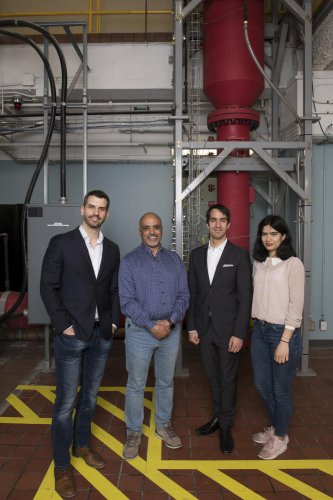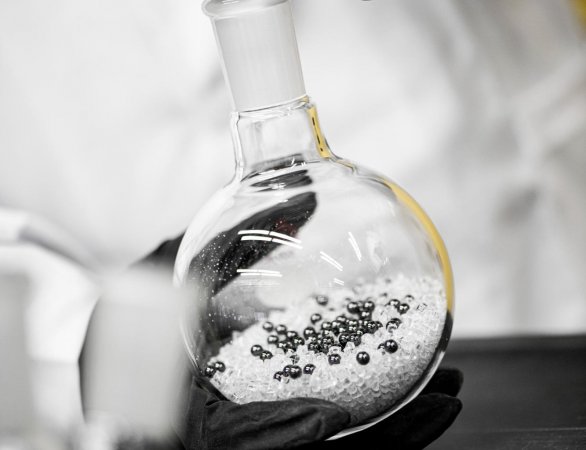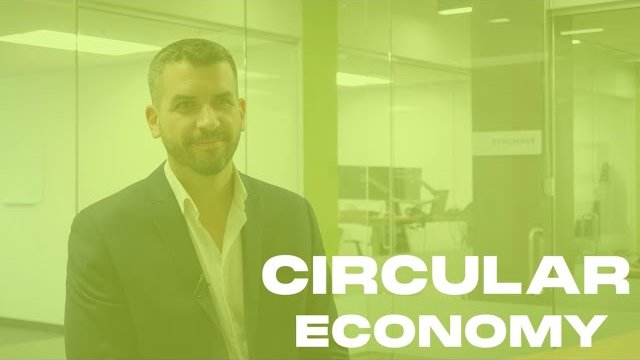Electrical Process Innovation Centre
Solve. Re-Solve.
The mission of the Microwave Process Innovation Centre is to continue the development of the Pyrowave platform. Our research team is at the forefront of the application and control of microwaves in multiple patented applications, aiming to develop the next generation of low carbon chemical processes.
- Expand the range of processed (mixed) plastics and the markets we can serve.
- Develop new applications of the Pyrowave platform in sectors with a high environmental impact, such as cement and other polymers, rubbers and materials, aiming at a circularity of resources.
- Work towards the electrification of chemical processes, by applying the microwave platform to the manufacturing industry in order to reduce energy consumption and increase yield, thus reducing the carbon footprint.
Working with international research partners and renowned universities, the innovation center publishes scientific research on the effects of microwaves on fluids. The research team is also working to develop new low-carbon applications, including the electrification of chemical processes. In this way, Pyrowave aspires to become a platform for the next generation of sustainable processes, contributing to a more environmentally-friendly manufacturing industry.
The power
of a sustainable solution
Scientific Publications
Discover the scientific publications of our innovation centre to learn more about the pioneering work in process electrification of our team.
Review articles
- Article in the Canadian Journal of Chemical Engineering (paying) :
Chaouki, J., Farag, S., Attia, M., & Doucet, J. (2020). The development of industrial (thermal) processes in the context of sustainability : The case for microwave heating. The Canadian Journal of Chemical Engineering, 98(4), 832‑847.
https://doi.org/10.1002/cjce.23710
Research articles
- Article in the journal of ScienceDirect : Ghazaleh Mirakhori, Audrey Collard-Daigneault, Amishga Alphonius, Jocelyn Doucet, Bruno Blais, Jamal Chaouki (2023). ScienceDirect. An improved position reconstruction method for radioactive particle tracking. https://www.sciencedirect.com/science/article/abs/pii/S0168900223004941?via%3Dihub
- Article in the Journal of Analytical and Applied Pyrolysis (available on request) :
Doucet, J., Chaouki, J., & Leclerc, P. (2018, 1 mars). Development of a microwave thermogravimetric analyzer and its application on polystyrene microwave pyrolysis kinetics. Journal of Analytical and Applied Pyrolysis.
https://linkinghub.elsevier.com/retrieve/pii/S0165237017308744 - Article available with a subscription:
Doucet, J., Laviolette, J. P., Farag, S., & Chaouki, J. (2013). Distributed Microwave Pyrolysis of Domestic Waste. Waste and Biomass Valorization, 5(1), 1‑10.
https://doi.org/10.1007/s12649-013-9216-0 - Microwave Heating-Assisted Catalytic Dry Reforming of Methane to Syngas
- Article available on request :
Farag, S., Sobhy, A., Akyel, C., Doucet, J., & Chaouki, J. (2012b). Temperature profile prediction within selected materials heated by microwaves at 2.45GHz. Applied Thermal Engineering, 36, 360‑369.
https://doi.org/10.1016/j.applthermaleng.2011.10.049 - Article available on request :
Chaouki, J., & Doucet, J. (2019). Biomimetic Apply to Waste Recycling. The 5th World Congress on New Technologies. Published.
https://doi.org/10.11159/icepr19.01
Book chapters
- Chapter available for purchase :
J.-P. Laviolette, P. Leclerc, A. Enferadi Kerenkan, A. Eslami, & J. Doucet
(2021). Monomer Recycling of Addition Polymers. In Circular Economy of Polymers : Topics in Recycling Technologies (Vol. 1391, p. 105‑128). ACS Publications. https://doi.org/10.1021/bk-2021-1391.ch006
Innovative projects
The projects of the innovation centre aim to develop the application of the Pyrowave modular technology platform to other plastics, but also to extend its applications to other industries.
POLYTECHNIQUE MONTRÉAL X PYROWAVE
Polytechnique Montréal and Pyrowave have received $173,000 in funding from the Natural Sciences and Engineering Research Council of Canada (NSERC) for a research project designed to electrify chemical processes, a promising avenue in the current context of transition to renewable energy and the circular economy.
The collaboration between our two organizations will initially make it possible to conduct experimental tests and develop models at the Polytechnique Montréal Laboratory. Later, the team will be able to validate the results obtained on an industrial scale, using our PW6’s microwave reactor. This project is unique in the world and demonstrates the strong potential from the symbiosis between an innovative industrial partner and academic research.






